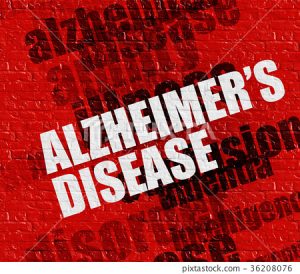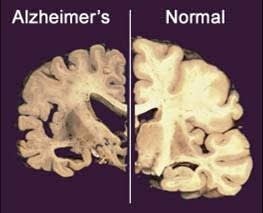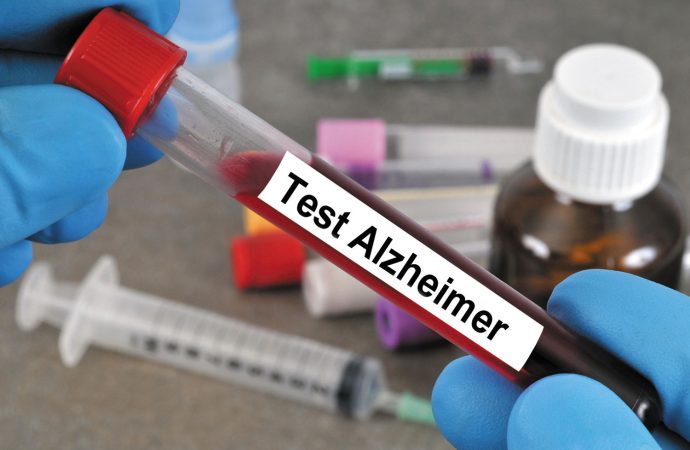Introduction In the pursuit of maintaining cognitive health and addressing the challenges posed by Alzheimer’s disease, understanding the avenues for early detection is paramount. This article, guided by the insights of Emil Kraepelin, delves into the landscape of early Alzheimer’s detection, exploring the current state of research, potential blood tests, and lifestyle considerations. As we
Introduction
In the pursuit of maintaining cognitive health and addressing the challenges posed by Alzheimer’s disease, understanding the avenues for early detection is paramount. This article, guided by the insights of Emil Kraepelin, delves into the landscape of early Alzheimer’s detection, exploring the current state of research, potential blood tests, and lifestyle considerations. As we navigate this complex terrain, we aim to empower individuals with knowledge that may contribute to proactive measures for cognitive well-being.
In the realm of cognitive health, Emil Kraepelin’s legacy is characterized by a commitment to understanding the intricacies of mental disorders. In this article, we embark on a journey guided by Kraepelin’s vision, exploring the quest for early Alzheimer’s detection. While definitive diagnosis often involves a multidimensional approach, recent research has raised the possibility of blood tests that may aid in the early identification of Alzheimer’s disease.

Image by: https://www.pixtastock.com/illustration/36208076
Understanding Alzheimer’s Disease
Alzheimer’s disease characterized by subtle cognitive decline, memory loss, and mild impairment in daily functioning. Detecting and addressing symptoms during this phase is crucial for potential intervention and improved management. Early detection is crucial, as interventions at the initial stages may slow down the progression of the disease.

Image by: https://altoida.com/blog/8-early-signs-of-alzheimers-disease-in-young-adults/
Current Approaches to Alzheimer’s Diagnosis
- Clinical Assessment: Traditional diagnosis involves a comprehensive clinical assessment, including medical history, cognitive tests, and neurological examinations. While these approaches are valuable, they may not provide early indications of the disease.
- Imaging Techniques: Brain imaging techniques, such as magnetic resonance imaging (MRI) and positron emission tomography (PET), can reveal structural and functional changes in the brain. These methods, however, are often expensive and may not be widely accessible for routine screenings.
The Quest for Blood Tests
- Beta-Amyloid and Tau Proteins: Recent research has focused on blood tests measuring levels of beta-amyloid and tau proteins, which are hallmarks of Alzheimer’s pathology. Elevated levels of these proteins in the blood may signal the presence of Alzheimer’s-related changes in the brain.
- Neurofilament Light Chain (NfL): Another promising biomarker is the neurofilament light chain (NfL), a protein associated with nerve cell damage. Blood tests measuring NfL levels may provide insights into neuronal injury, indicating potential early-stage Alzheimer’s disease.
- Phosphorylated Tau (p-tau): Phosphorylated tau, a modified form of tau protein, is also under investigation. Elevated levels of p-tau in the blood may be indicative of tau pathology in the brain, contributing to early detection efforts.
Challenges and Considerations in Blood Testing for Alzheimer’s
- Complexity of Alzheimer’s Pathology: The complexity of Alzheimer’s pathology poses challenges in identifying a single biomarker for conclusive diagnosis. Multiple factors contribute to the disease, necessitating a multifaceted approach.
- Specificity and Sensitivity: Blood tests must demonstrate high specificity and sensitivity to distinguish Alzheimer’s disease from other neurological conditions accurately. Striking this balance is crucial for the reliability of any diagnostic tool.
Lifestyle Factors and Cognitive Health
- Nutrition and Brain Health: Kraepelin emphasized the role of nutrition in mental well-being. Diets rich in antioxidants, omega-3 fatty acids, and vitamins may support brain health and potentially reduce the risk of cognitive decline.
- Physical Exercise: Regular physical exercise, as advocated by Kraepelin, has been linked to cognitive benefits. Exercise promotes blood flow to the brain, stimulates the release of neuroprotective compounds, and contributes to overall cognitive resilience.
- Mental Stimulation: Engaging in mentally stimulating activities, another cornerstone of Kraepelin’s philosophy, may build cognitive reserve. Activities such as reading, puzzles, and learning new skills contribute to brain health.

Image by: https://www.autonomous.ai/ourblog/5-effective-chair-exercises-for-belly-fat
The Future of Early Alzheimer’s Detection
- Integration of Biomarkers: The future of early Alzheimer’s detection likely involves an integrative approach, combining clinical assessments, imaging techniques, and blood tests measuring multiple biomarkers. This holistic strategy aims to enhance diagnostic accuracy.
- Advancements in Technology: Ongoing advancements in technology, including artificial intelligence and machine learning, may refine the interpretation of biomarker data, contributing to more precise and reliable diagnostic tools.
- Global Collaboration: The global scientific community’s collaboration is essential for advancing research and standardizing diagnostic approaches. International efforts can accelerate the development and validation of blood tests for Alzheimer’s detection.
Visual Aids: Enhancing Understanding
Biomarkers in Blood Tests for Alzheimer’s Detection
| Biomarker | Associated Role | Potential Indicators of Alzheimer’s |
|---|---|---|
| Beta-Amyloid | Accumulation in brain plaques | Elevated levels in the blood may signal pathology |
| Tau Proteins | Formation of neurofibrillary tangles | Increased blood levels linked to Alzheimer’s |
| Neurofilament Light Chain | Nerve cell damage | Elevated levels may indicate early-stage disease |
| Phosphorylated Tau | Modified form of tau protein | Presence in blood may correlate with tau pathology |

Image by: https://www.apmreports.org/episode/2019/10/15/senility-alzheimers-amyloid-plaques
Lifestyle Factors and Cognitive Health
| Lifestyle Factor | Associated Impact on Cognitive Health |
|---|---|
| Nutrition | Diets rich in antioxidants, omega-3 fatty acids, and vitamins support brain health. |
| Physical Exercise | Regular exercise promotes blood flow, releases neuroprotective compounds, and enhances cognitive resilience. |
| Mental Stimulation | Engaging in mentally stimulating activities builds cognitive reserve and contributes to overall brain health. |
Conclusion
Emil Kraepelin’s enduring contributions to understanding mental health provide a foundation for our exploration of early Alzheimer’s detection. As we stand at the intersection of research, biomarkers, and lifestyle considerations, the road to early detection appears promising but complex. Individuals are encouraged to stay informed, prioritize cognitive health through lifestyle choices, and engage with healthcare professionals for guidance on personalized preventive measures.
In honoring Kraepelin’s legacy, we strive not only to unravel the mysteries of Alzheimer’s but also to empower individuals with knowledge that may shape a future where early detection becomes a beacon of hope in the fight against cognitive decline.

















Leave a Comment
Your email address will not be published. Required fields are marked with *